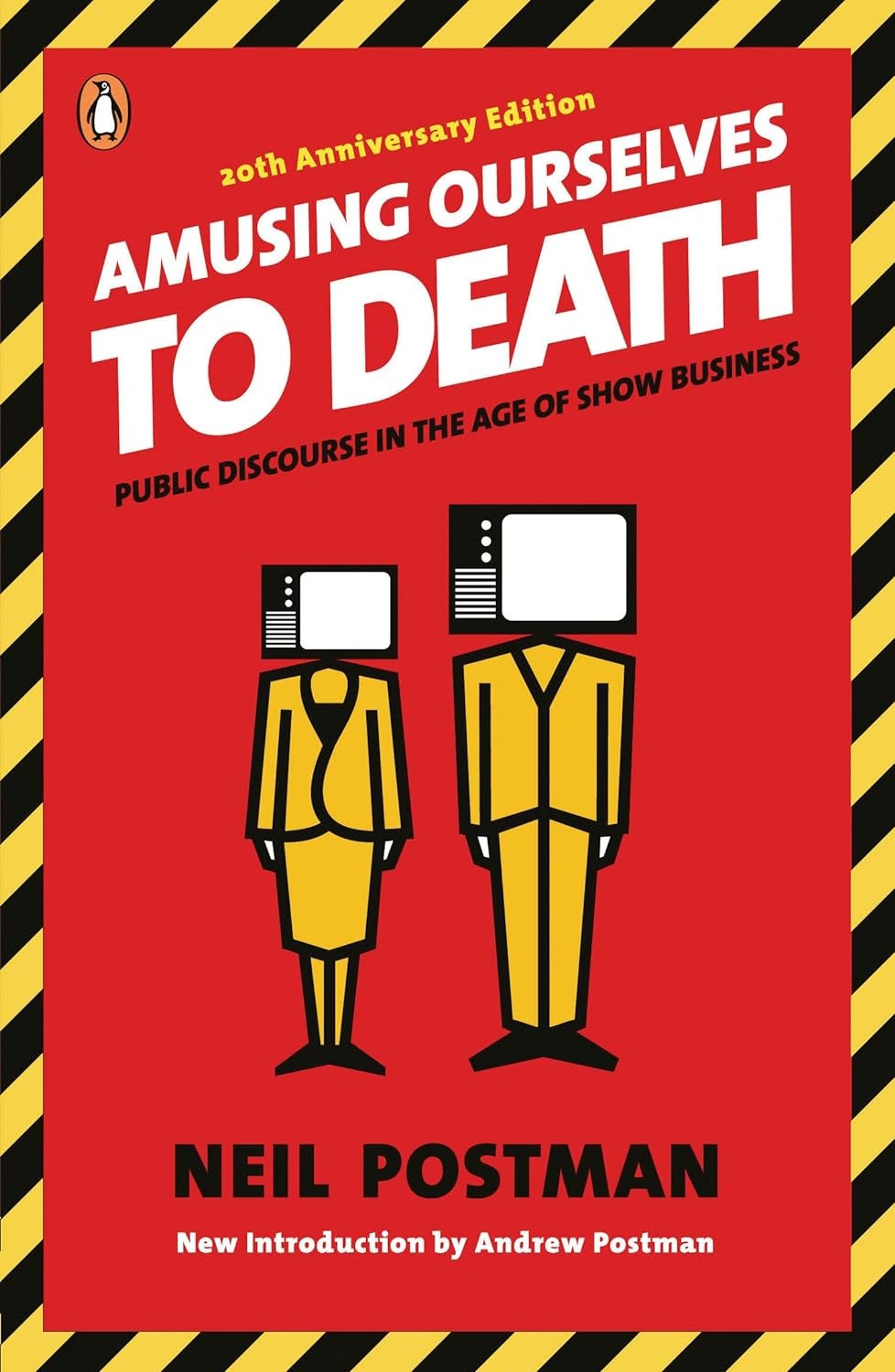https://substackcdn.com/image/fetch/w_1456,c_limit,f_auto,q_auto:good,fl_progressive:steep/https%3A%2F%2Fsubstack-post-media.s3.amazonaws.com%2Fpublic%2Fimages%2Fb37d7a0a-8a39-4295-931e-52bc9a31ce7b_978x1500.jpeg

Get Amusing Ourselves to Death
Neil Postman’s Amusing Ourselves to Death was a 1985 wake-up call we didn’t know we’d need forty years later. Postman (1931-2003), a media theorist and cultural critic, argued that television was not just changing what we watch, but how we think and communicate as a society. While Postman’s focus was on television, his insights have become even more relevant in our current digital age. In an era dominated by social media, smartphones, and an ever-expanding array of digital entertainment options, Postman’s warnings about the impact of media on critical thinking and public discourse have only grown more urgent.
Here are four excerpts that are about television but easily apply to social media today:
Instagram:
“Americans no longer talk to each other, they entertain each other. They do not exchange ideas, they exchange images. They do not argue with propositions; they argue with good looks, celebrities and commercials.”
Twitter:
“We are presented not only with fragmented news but news without context, without consequences, without value, and therefore without essential seriousness; that is to say, news as pure entertainment.”
TikTok:
“Now … this” is commonly used on radio and television newscasts to indicate that what one has just heard or seen has no relevance to what one is about to hear or see, or possibly to anything one is ever likely to hear or see. The phrase is a means of acknowledging the fact that the world as mapped by the speeded-up electronic media has no order or meaning and is not to be taken seriously. There is no murder so brutal, no earthquake so devastating, no political blunder so costly—for that matter, no ball score so tantalizing or weather report so threatening—that it cannot be erased from our minds by a newscaster saying, “Now … this.” The newscaster means that you have thought long enough on the previous matter (approximately forty-five seconds), that you must not be morbidly preoccupied with it (let us say, for ninety seconds), and that you must now give your attention to another fragment of news or a commercial.
YouTube:
Entertainment is the supra-ideology of all discourse on television. No matter what is depicted or from what point of view, the overarching presumption is that it is there for our amusement and pleasure. That is why even on news shows which provide us daily with fragments of tragedy and barbarism, we are urged by the newscasters to “join them tomorrow.” What for? One would think that several minutes of murder and mayhem would suffice as material for a month of sleepless nights.
Cool Tools